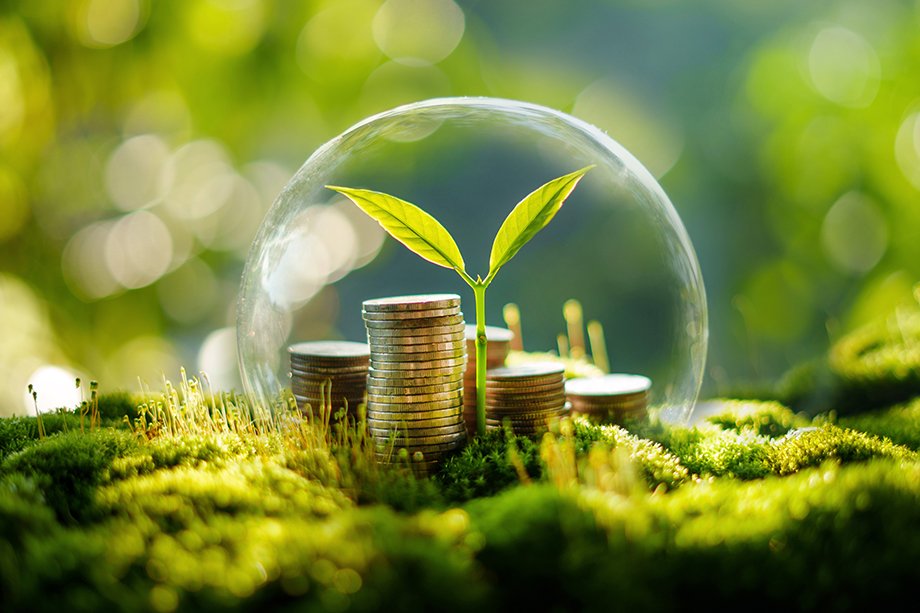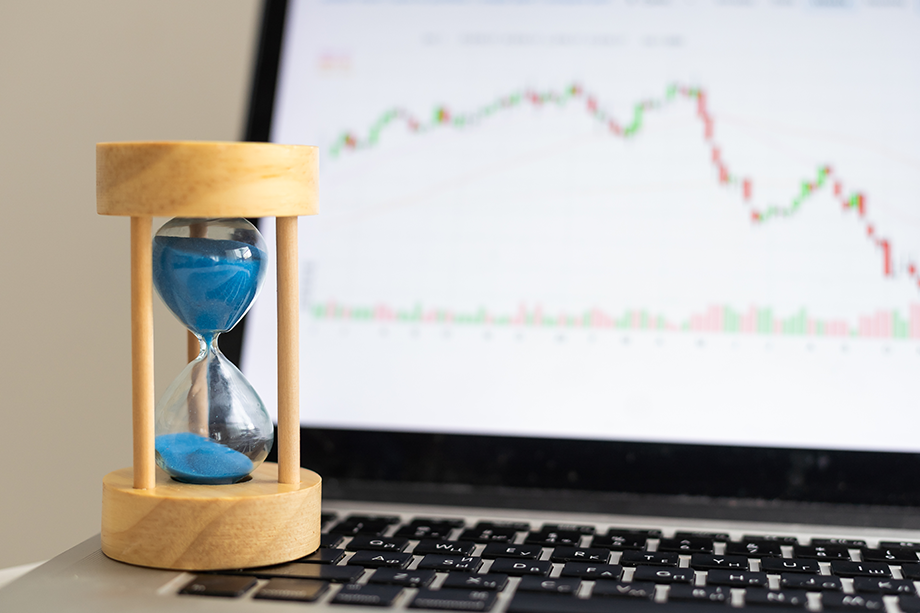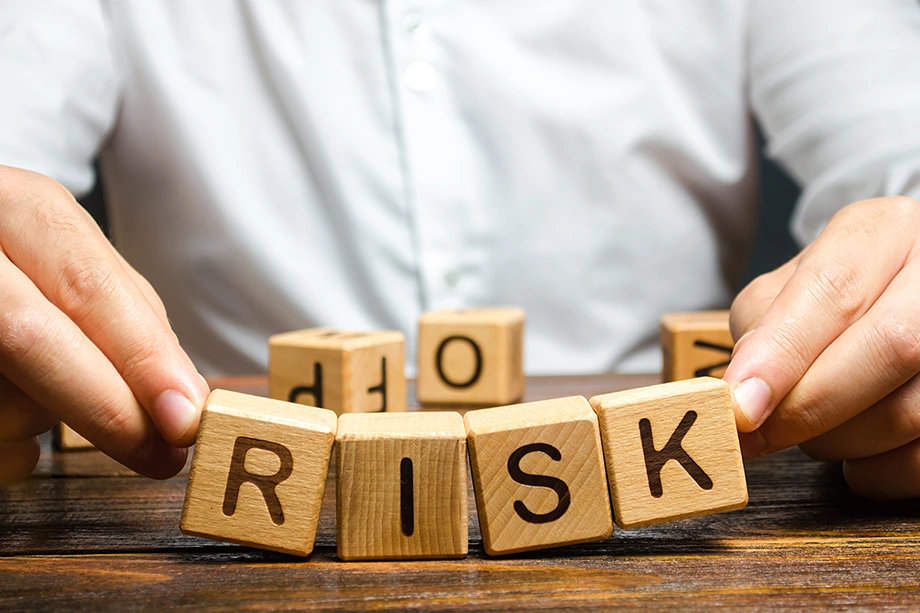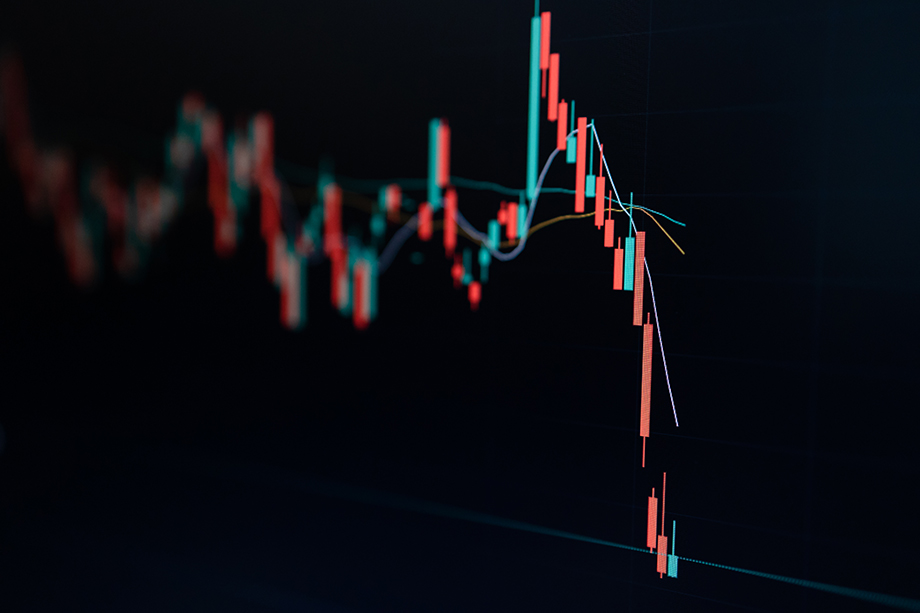It’s hard to escape the financial impact of the COVID pandemic…
The stock market and real estate crashes, the skyrocketing unemployment rates, supply chain issues, and entire industries (like travel and restaurants) were decimated amidst “stay at home” orders across the country.
The financial bubble we were all living in has definitely burst. And eventually all bubbles do. So, you gotta ask yourself: are you preparing for the worst? Because post-COVID, there are still a lot of people living in crisis.
If you’re one of them, ask yourself:
Will the current or next market crash make you stronger, or weaker?
Will you rise to the challenge, and use your creativity and persistence to overcome the current or next immense hardship?
Or will you complain, play the blame game, and let the situation get the best of you?
Building market crash resilience is key to not just surviving but thriving in the aftermath of economic downturns, as evidenced by this wonderful quote by Albert Einstein:
“Let’s not pretend that things will change if we keep doing the same things. A crisis can be a real blessing to any person, to any nation. For all crises bring progress. Creativity is born from anguish, just like the day is born from the dark night. It’s in crisis that inventiveness is born, as well as discoveries made and big strategies. He who overcomes crisis, overcomes himself, without getting overcome. He who blames his failure to a crisis neglects his own talent and is more interested in problems than in solutions. Incompetence is the true crisis. The greatest inconvenience of people and nations is the laziness with which they attempt to find the solutions to their problems.”
This underscores the importance of a crisis action plan, which equips you to face and overcome these inevitable downturns.
What role did you play?
Take an honest look at your current financial situation and ask yourself, “How and why did this happen?” The purpose of analyzing what led you to this point is to be objective and learn as much as you can — not necessarily to place blame.
Recognize how your own thoughts and actions led you here (as much as the actions of others). Yes, at first glance your financial struggles appear to be the fault of someone or something else. And someone or something else just may be why you lost your job or why your 401k has tanked.
But what’s the real underlying issue here?
It’s probably that you weren’t financially prepared for any disruption to your finances, let alone a monumental market crash. You may have thought you were in a “good enough” position just prior to the COVID crisis (or whatever else it was that sent you off the cliff) because you had a job and were able to pay all your bills — but, at the end of the day, your income was solely dependent on someone else providing paychecks to you.
In reality, at any time you could have lost your job and ended up in a similar situation: unemployed and unable to pay your bills. It’s just that it’s worse now because jobs are even harder to come by and the pandemic set a dangerous economic and financial precedent across America and the world.
How would things be different if you had positioned yourself in a way that would make you immune to a global pandemic’s far-reaching economic effects?
Once you recognize how you got here, next ask yourself, “How can I prevent this from ever happening to me again?” In other words, “How can I prepare for the worst now so that it doesn’t affect me so intensely next time?” The great thing about acknowledging your own contributions to the problem is that you then have the power to come up with a solution and prevent a similar crisis in the future.
Here’s a link to a video where world-renowned investors Robert Kiyosaki and Kim Kiyosaki discuss the adversity they went through when they were broke, homeless, and saddled with bad debt — and what they learned from that time of crisis in their lives.
How to prepare for the next economic collapse
We’ve all heard plenty about the uncertain economy, and though speculation on the future of the economy is running rampant everywhere, no one can predict with certainty what will happen next.
Understanding that markets are cyclical and a stock market or real estate crash can occur at any time, it’s essential to have investment portfolio safeguards in place. These safeguards are your first line of defense, ensuring your investments can weather the storms of market volatility and economic downturns.
But despite the doom and gloom, those of us “in the know” realize that now can be the best time to pick up good investments at a great price. Of course, that doesn’t mean you should run right out and start buying stocks. The first step before you purchase an investment — whether it’s stocks, real estate or commodities, like gold and silver — should be to arm yourself with some education.
Here are a few things you can do today to increase your financial education:
Read business articles
Pick up a publication like The Wall Street Journal, Fortune, The Economist, or any other magazine that focuses on financial and business topics. Even reading the business section of your local newspaper will increase your knowledge.
Learn the lingo
When you come across vocabulary/jargon that you’re unfamiliar with, look it up. Simply learning the language of investing can speed up your learning a lot.
Window shopYou can look at investments and analyze deals even if you are not ready to buy. You’ll learn a lot from this process. For example, you can participate in a fantasy stock program or “paper trading” where you can “invest” in the stock market with pretend money and watch how well your investment does. You can research real estate on the Internet. You can visit precious metal dealers to learn how the business works and how to be a smart shopper.
There is no shortage of information in our world today, so take advantage of that.
Once you’re armed yourself with some financial education, start with a small investment. You’ll still make some mistakes as you learn along the way (which is why starting small is always a wise choice), but down the road you’ll look back and realize this truly was the best of times to invest.
Recession-proof real estate investing
In the months leading up to the coronavirus pandemic, experts were already speculating about the next real estate bubble. Let’s look at recent history:
First, there was the 1980’s savings and loan crisis.
Then, in 1987, the stock market crashed and the Dow Jones index lost 23% of its value.
The next major event was the dotcom bubble and subsequent crash from 1999 to 2000.
After that, we saw the global financial crisis in 2007-08, which was triggered by the subprime mortgage crisis and collapse of the U.S. housing bubble.
(We’re missing a few smaller ones but those are the true highlights, or lowlights, really.)
Since history shows that markets are cyclical, you should always expect a market crash to hit sooner or later. Because they always do and always will! But here’s the thing: the financially educated are never worried about it.
In fact, they love market crashes. Why?
First, it’s crucial to get acquainted with market volatility indicators—consider these as warning signals that manifest throughout the seven stages of a financial bubble. Understanding these indicators will lay the groundwork for our upcoming discussion. Booms, busts, and the various stages of financial bubbles are recurring and natural patterns within our economy.
Take a look:

Ok, now here’s the answer you’ve been waiting for:
Market crashes can be the best time to buy, because people are so panicked and focused on selling that they’re far more likely to make you a better deal. Robert and Kim witnessed this first-hand in 1991, when they moved to Phoenix, Arizona and began buying up properties left and right (because real estate often offers stability in tumultuous times, making it a critical component of a well-rounded investment strategy).
In fact, amateur investors wanted out of their financial commitments so badly that they were actually calling Robert and offering to pay him to take their properties off their hands! Of course, Robert happily agreed and definitely got the last laugh: he and Kim, made so much money during that period of time, they were able to retire by 1994.
Don’t listen to the haters
Although a crash is our favorite time to buy, the market’s immense pessimism also makes it a tough time to do so. So much so that billionaire Warren Buffett famously said:
“Bad news is an investor’s best friend. It lets you buy a slice of America’s future at a marked-down price.”
And even your family and friends, possibly even your financial advisor, will think you’re absolutely crazy and try to prevent you from “making a big mistake,” the best time to buy is when assets are “on sale” (e.g. during a crash). Afterall, post-crash diversification is vital, as it spreads risk and opens up new avenues for growth in your investment portfolio.
Robert told a story about buying gold at $275 an ounce in the late 1990s. The so-called experts were eschewing gold in favor of high-tech and dot-com stocks back then. But he knew he was getting an incredible value. Today, with gold above $2,250 an ounce (circa April 2024), we’d say Robert certainly made the right call. Thankfully he trusted his instincts and followed the strategy that’s worked for him time and time again.
The benefits of dollar-cost averaging, where regular investments smooth out market volatility, cannot be overstated during these times. Yet still, people will also be lined up warning that “investing is risky.”
And they’re correct. But, the important detail to note is that not everyone defines “investing” the same way. Many amateur investors bought into the real estate market when it was hot, prices were soaring, and they invested on the hope that home values would keep going up and up.
They probably had plans to flip the property and make a quick $50k. Investing for the purpose of capital gains instead of cash flow is the very definition of risky — and not the type of recession-proof real estate investing we’re talking about. Experienced investors, like Robert and Kim, understand the fundamentals of real estate investing. Investing doesn’t have to be a gamble. Good cash-flow investments are based on deepening your financial education for recovery and future prosperity, which empowers you to make informed decisions.
Knowing and following the fundamentals takes much of the risk out of investing. Sure, there’s always some element of risk, but by sticking to sound investment strategies and planning for ways to cover the downside, the risk can be greatly reduced.
We wish you the best of luck as you work to overcome the economic turmoil. Seeking professional investment advice can provide personalized insights and strategies, as you tailor your approach to market conditions and your specific financial goals.
Knowing that you can be better prepared for the next market crash—which is inevitable—should bring you peace of mind. Not only can you safeguard yourself against future economic downturns, but you might also find ways to turn these situations to your advantage. This understanding gives you a crucial goal: to prepare thoroughly now so you can benefit financially later.






